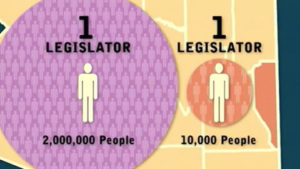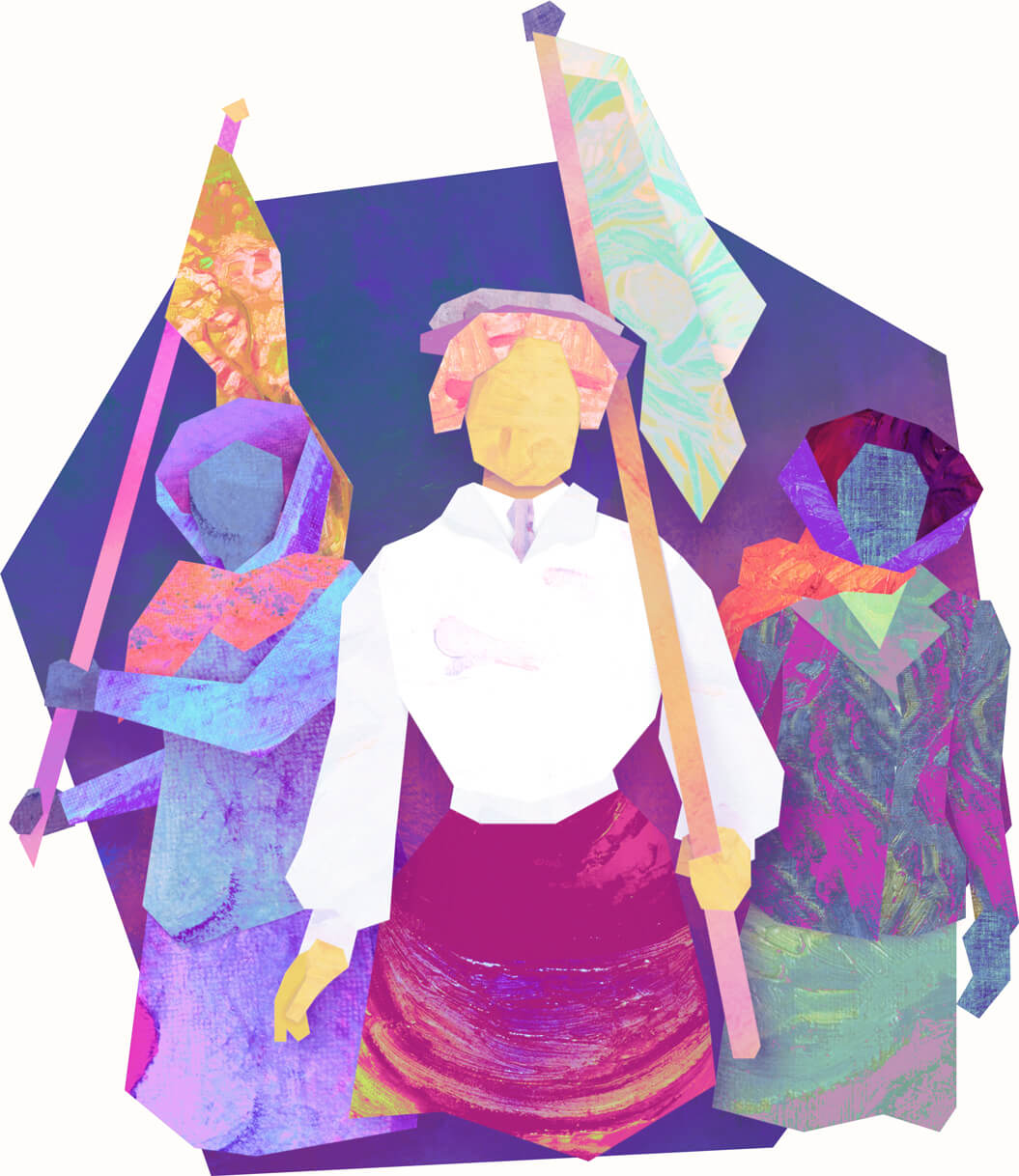This middle school lesson plan is designed to accompany the film “Juneteenth” and focuses on the themes of freedom and citizenship. Students will explore the events that led up to the issuance of General Order #3, while considering the relationship between freedom and citizenship, and why Juneteenth is significant for all Americans.
The 19th Amendment: Scholarly Articles and Book Chapters
Scholarly articles and book chapters complement the Annenberg Classroom video “The 19th Amendment: A Woman’s Right to Vote.”
The 19th Amendment: Primary Sources
These primary sources follow the content and narrative structure of the Annenberg Classroom film “The 19th Amendment: A Woman’s Right to Vote.”
Influential Movements in the Struggle for Women’s Suffrage
This lesson will encourage students to use primary sources in conjunction with the video “The 19th Amendment: A Woman’s Right to Vote” and the timeline found on Annenberg Classroom to understand how various events contributed to the changing views and attitudes on women’s suffrage leading to the ratification of the 19th Amendment. Students will focus on the Abolitionist Movement, the Reconstruction Amendments, and World War I to explain how these events helped or hindered the women’s suffrage movement.
The 19th Amendment: A Woman’s Right to Vote
Voting is the most basic right of a citizen and the most important right in a democracy. When you vote, you are choosing the people who will make the laws. For almost a century and a half of our nation’s history, women were barred from exercising this fundamental right. This is a film about their long, difficult struggle to win the right to vote. It’s about citizenship, the power of the vote, and why women had to change the Constitution with the 19th Amendment to get the vote.
15th Amendment
The 15th Amendment prohibits using race as a factor to determine which citizens can vote.
One Person, One Vote: Baker v. Carr and Reynolds v. Sims
This lesson explores these questions: “Does the Constitution require that every person’s vote count the same as another person’s vote? Why would that be important?”
One Person, One Vote: Baker v. Carr and Reynolds v. Sims
In this documentary, Justices Sandra Day O’Connor and Stephen G. Breyer and other experts discuss how the principle of one person, one vote emerged from a series of landmark decisions in the 1960s, including Baker v. Carr and Reynolds v. Sims.

Chapter 11: The Right to Vote
We cannot imagine a modern democracy without adult citizens having the right to vote freely. It is a basic right of citizenship in a democratic society. Yet nowhere in the Constitution is the right to vote granted explicitly.
Voting Rights
This timeline provides milestones in U.S. history as voting rights have evolved.
24th Amendment
The 24th Amendment eliminates the poll tax, a state fee on voting. Poll taxes were used to keep low-income citizens from participating in elections.
26th Amendment
In 1971, the 26th Amendment is added to the Constitution, permanently lowering the voting age for all elections to 18.
Freedom from Discrimination
This timeline addresses milestones in the civil rights movement, women’s rights movement, and immigration and citizenship.
Project Vote Smart
Project Vote Smart is a nonprofit, nonpartisan organization that gathers and organizes information on candidates for political office. Vote Smart seeks to discover where candidates stand on any number of issues by scouring public voting records, public statements and biographical information, by monitoring ratings of candidates given by more than 100 competing special-interest groups, and by sending its own detailed questionnaires to candidates through its National Political Awareness Test.
National Institute on Money in Politics (Follow the Money)
National Institute on Money in Politics is a nonpartisan organization “dedicated to accurate, comprehensive and unbiased documentation and research on campaign finance at the state level.”
Federal Election Commission
The Federal Election Commission is an independent government agency was created in 1974 in the wake of the Watergate scandals to regulate campaign spending and police requirements for disclosing federal campaign money.
American Civil Liberties Union
According to the American Civil Liberties Union, the organization, founded in 1920, is the “nation’s guardian of liberty, working daily in courts, legislatures and communities to defend and preserve the individual rights and liberties that the Constitution and laws of the United States guarantee everyone in this country.”
Alliance for Justice
The Alliance for Justice describes itself as “a national association of environmental, civil rights, mental health, women’s, children’s and consumer advocacy organizations” that works to “advance the cause of justice for all Americans, strengthen the public interest community’s ability to influence public policy, and foster the next generation of advocates.”
Leadership Conference on Civil Rights
The Leadership Conference on Civil Rights says it is “the nation’s premier civil rights coalition,” and it has “coordinated the national legislative campaign on behalf of every major civil rights law since 1957.” It was founded in 1950 by A. Philip Randolph of the Brotherhood of Sleeping Car Porters, Roy Wilkins of the NAACP and Arnold Aronson of the National Jewish Community Relations Advisory Council. Today, the LCCR has more than 180 member organizations, including People for the American Way, AARP, the American Civil Liberties Union, the AFL-CIO and constituent unions, the NAACP, National Council of La Raza, the Human Rights Campaign and the National Organization for Women.
Chapter 14: Establishing Equality in Voting and Representation
Given the centrality of the electoral process in a representative democracy, the right to vote is the citizen’s most precious political possession. Citizens can contribute significantly to the achievement of good government.
FactCheck.org
According to its website, FactCheck.org is a “nonpartisan, nonprofit ‘consumer advocate’ for voters that aims to reduce the level of deception and confusion in U.S. politics.” Its staff monitors factual accuracy in American politics, looking at what’s being said in TV ads, debates, speeches, interviews and the like.
ProCon.org
This independent, nonprofit website lays out the arguments on both sides of a host of controversial issues. Its mission statement: “We promote critical thinking, education, and informed citizenship.”
National Conference of State Legislatures
A bipartisan organization for state, commonwealth and territorial legislators and their staffs, the National Conference of State Legislatures “provides research, technical assistance and opportunities for policymakers to exchange ideas on the most pressing state issues.” The organization advocates the interests of state governments.


